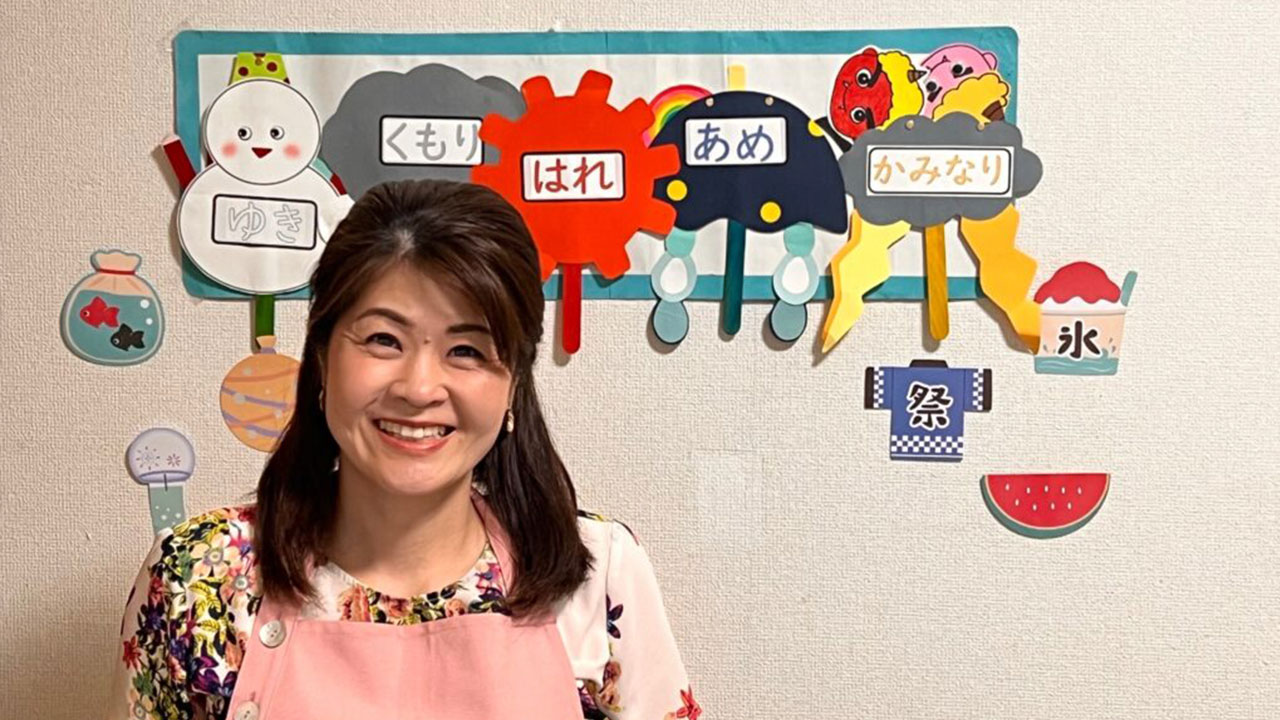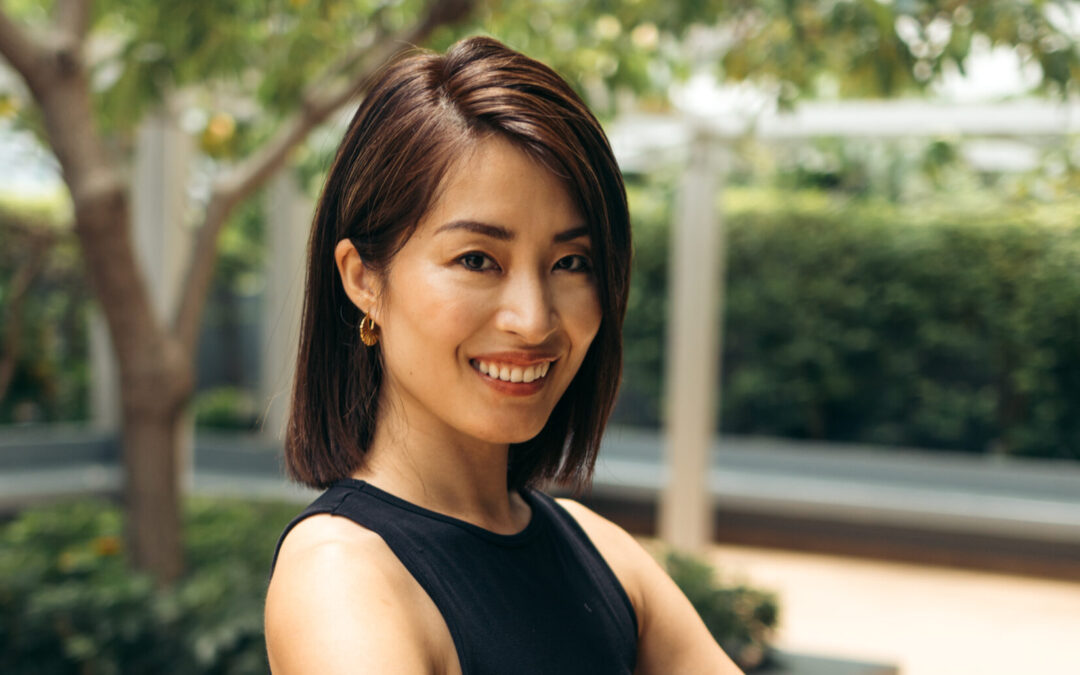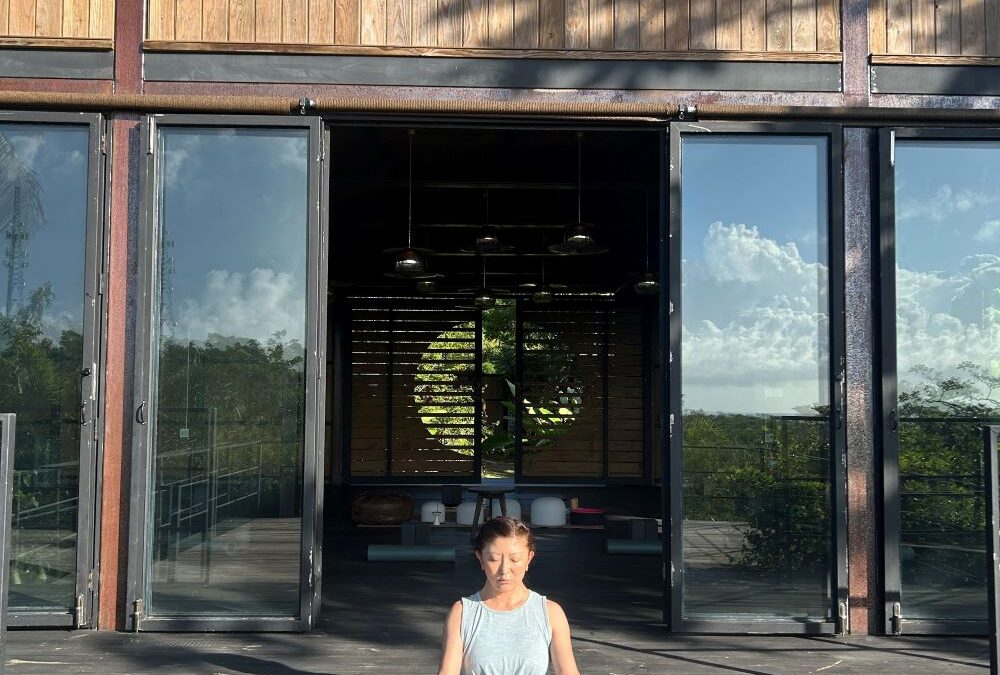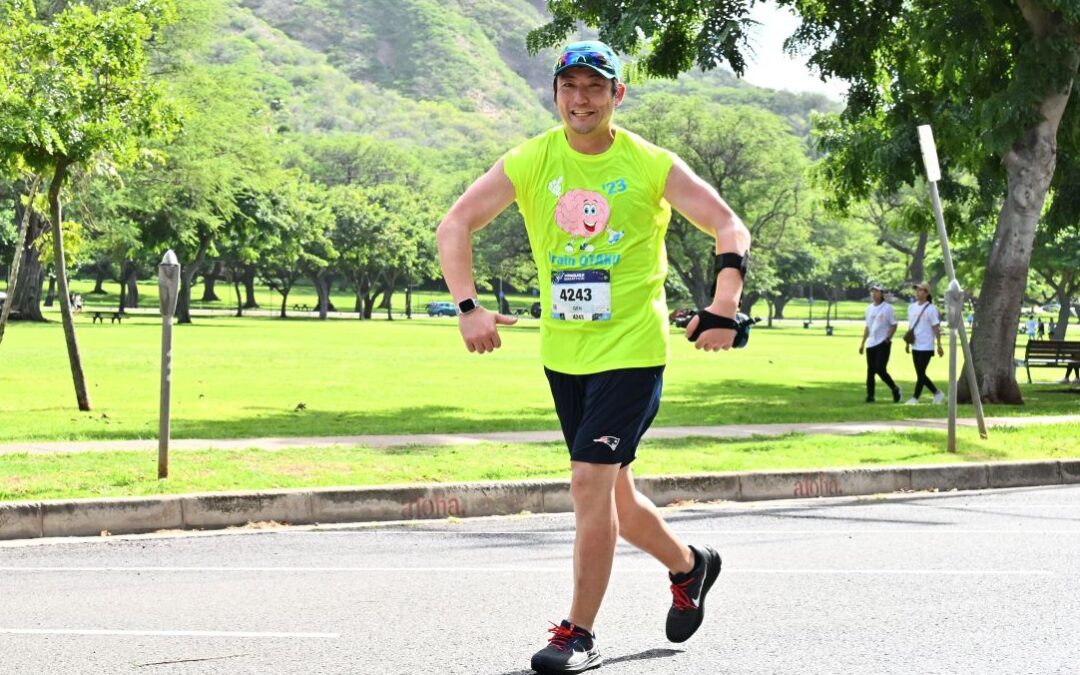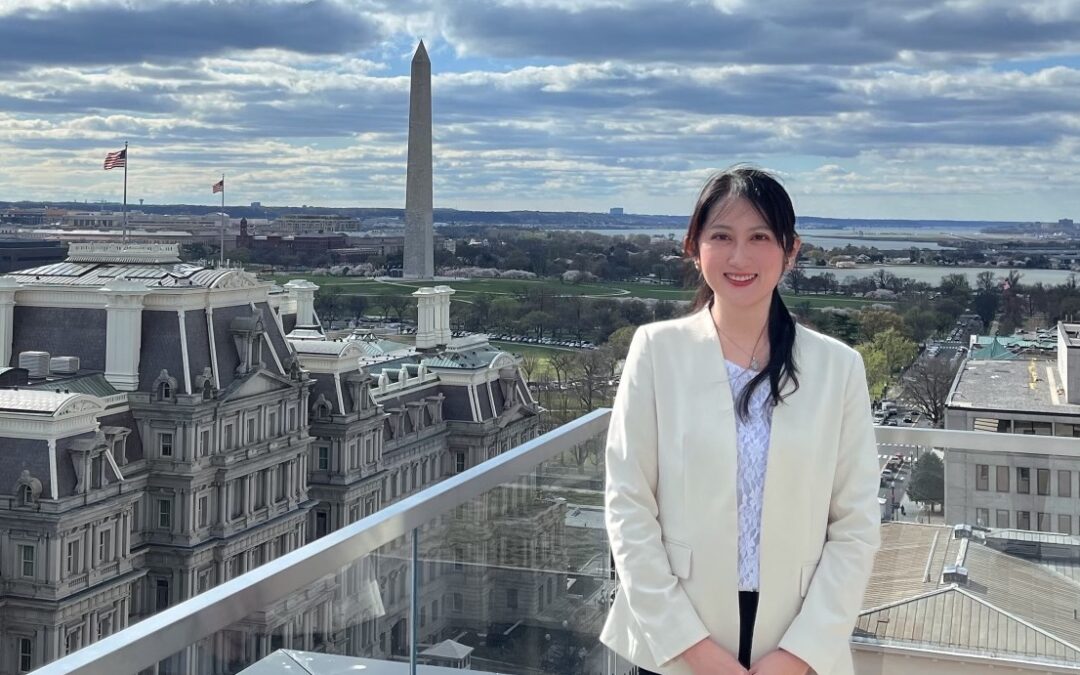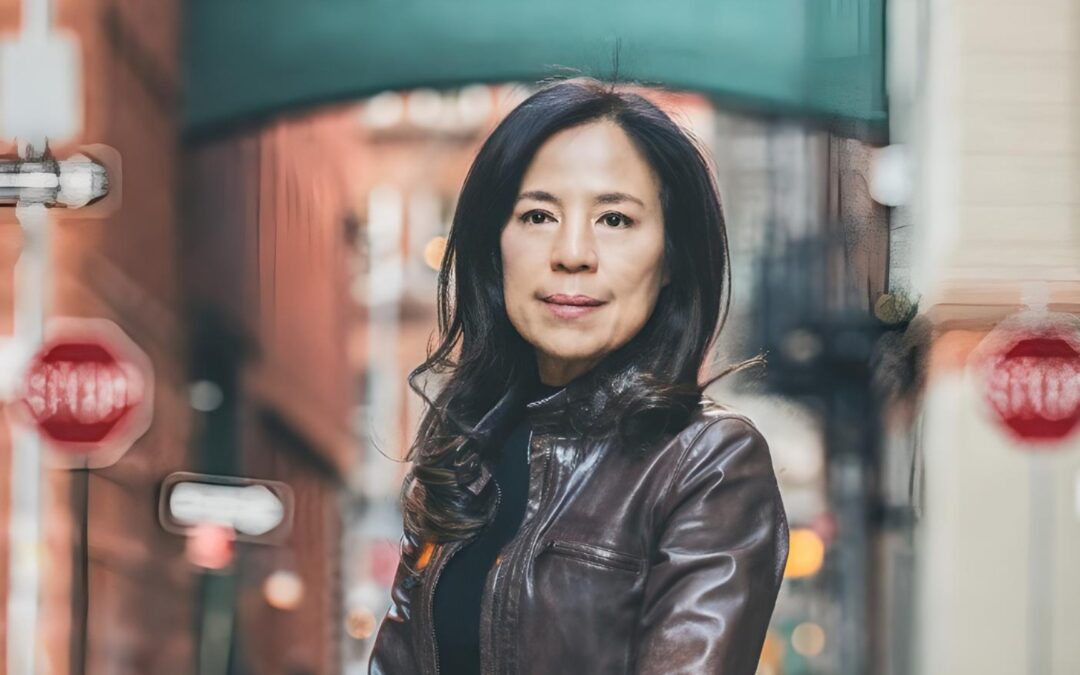This time, we interviewed Rie Carr, who is involved in early childhood education.
1. Please tell us about your journey to the United States.
I was working as a teacher at a kindergarten in Fukuoka Prefecture when I met my American husband, who was working at a naval base in Sasebo, Nagasaki. After marriage, we moved to the state of Hawaii where my husband was on duty. After that, we moved to Yokosuka City, Kanagawa Prefecture, California, etc., about every three years, and came here to Virginia in 2014.
2. What kind of work do you do now?
I have worked in early childhood education for many years. Whenever I moved to a new place, I would look for a job where I could work with children. Since coming to Virginia, I have been working at a Japanese language preschool that offers a program that follows a Japanese curriculum while incorporating Japanese culture and customs. My role is to support children's growth through crafts based on seasonal events such as Hinamatsuri (Girls' Day), Jugoya (Night of the Full Moon), Setsubun (Bean Throwing Festival), Oshogatsu (New Year's Day), as well as play and learning unique Japanese activities such as children's songs, hand games, reading and writing Hiragana (Japanese alphabet). In addition, I try to create a curriculum that can be enjoyed both in person and online. We have children from a variety of backgrounds, including those whose parents are Japanese (expatriates), those whose parents are either Japanese, and those whose parents are not Japanese but who have lived in Japan before and wish to keep in touch with Japan. It is very interesting to see the cultural differences and characteristics among children.
3. How did you get into early childhood education?
Thinking back, since I was in elementary school, I loved taking care of my relatives and neighbors who were younger than me. I really genuinely think they are fun and cute when I am with them. My main goal was to be able to interact with children, so I studied at a junior college and became a teacher, and actually started working at a kindergarten, but it was there that I first saw the anguish that the parents face. Of course, raising a child is full of joys and happiness, but it is also very hard. All mothers do their best every day while thinking about their own children, but it seemed that their worries were endless. At the time, I was not yet married and had not yet had a child, so it was refreshing to learn about the current situation of the parents. As I listened to their stories and sought their advice, I began to feel the need to listen not only to their children's feelings but also to their parents' feelings. When parents' feel relaxed, it has a positive impact on their children. My experience at that time, when I realized that being close to both parents and children is what early childhood education is all about, is the starting point that leads me to where I am today.
4. How do you feel when you look at parents and children from the standpoint of a teacher?
Just like adults, children have "chemistry". It is also true that children's relationships are linked in no small way to the relationships between their parents. I feel that it is our role to observe children from the same perspective as we observe adults, and to help them feel comfortable with each other and to create opportunities for them. It is often thought that it is best for children to be able to get along and have a good time with all their friends, but I feel that children will live more comfortably if their parents are able to accept that sometimes things just don't work out and that there is no way around it. I think it would be easier for children to live their lives if their parents could be more open to the idea that it is inevitable that things will go wrong.
5. What are some of the challenges and joys of working in early childhood education in Japan and the U.S.?
Children born and raised in Japan are accustomed to living in groups and are more open-minded about what to do and how to do it. Children who grow up in the U.S. are more likely to raise their hands and speak up on their own, as their individuality is valued. While it is endearing to see the Japanese children being humble, the children in the US express themselves clearly. Their individuality is also expressed in their artistic sense and use of color, and each of their works is truly different from the others, making them very attractive when displayed on the wall. The coexistence of both types of children is a unique feature of the Japan Preschool in the United States. The process of bringing everyone together is a lot of work, but it is also the most enjoyable part. I enjoy the differences while working with the children.
Children are also very flexible. They can adapt to their surroundings in any way they like. And every child is making efforts in his or her own way. Children who attend local preschools should be more comfortable speaking in English, but they try their best to speak in Japanese during the activities at the Japanese language preschool. Whenever I see such a situation, I think it is wonderful and I am more energized. Since we don't have any uniform, everyone wears different clothes, shoes, and backpacks. Even if you take a single item, it is a place for them to express their individuality and intensions, and it is filled with diversity.
6. What are some of the challenges of living in the U.S.?
I think everyone feels a bit lonely living in a foreign country away from Japan. I myself had a lot of challenges raising a child in a foreign country without immediate relatives to rely on. But that is why I understand the value of helping each other with Japanese friends, and I think it will enhance my skills to consider the feelings of others when taking action. The environment, which is completely different from that in Japan, has made me stronger.
7. Do you have any goals for the future?
I would like to continue to be passionate about early childhood education. As I mentioned at the beginning, I value working from the perspective of both children and their parents, and I especially want to create a place of communication where I can be close to mothers and fathers who are working hard to raise their children in a foreign country away from Japan. If my own experience of raising children in the U.S. and as a teacher who has worked on both in Japan and the U.S. can be a hint to someone else, I would be so happy.
6. Do you have any words for Japanese women here in the U.S. who have yet to find their passion or who are anxious about taking the first step to pursue their passion?
Please try to take the first step forward. If you have children, try to be brave enough to go to a classmate's birthday party. There are gyms in the U.S. where you can leave your children, so you can meet new people while having a change of pace. It's great that nowadays you can easily find a hobby community on the web or social networking sites. Your husband's work-related events and parties are also great opportunities. I recommend that you try to visit such social gatherings in your daily life. Even if you think it's a bit of a chore, there will be something for you if you go. New discoveries that will add color to your life in a foreign country are right there, right next to you.
★ Interviewer's note
Rie's story, in which she has expanded her activities by seeking opportunities to be involved in early childhood education wherever she goes in Japan and the U.S., showed us not only her passion, but also her flexibility. Her message that we can encounter unexpected discoveries if we have the courage to go out gives a big push to those of us who live in a foreign country. I was also impressed by her analogy of " You can always find something new at any place even if it is a supermarket or a farmer's market." We can't stop expecting more for her next stage as she continues with her motto of being close to both children and parents. Thank you very much.

